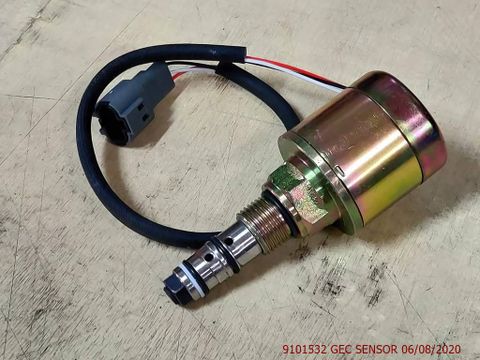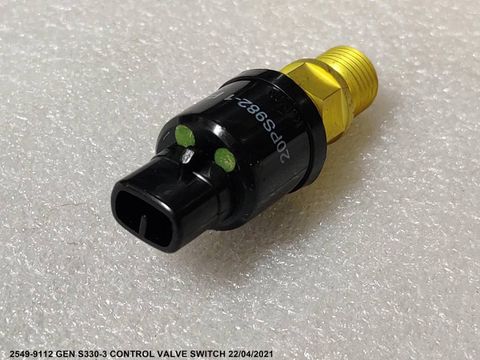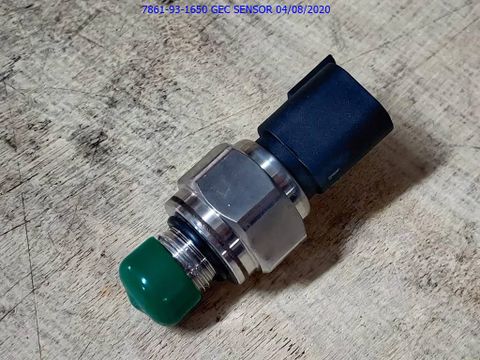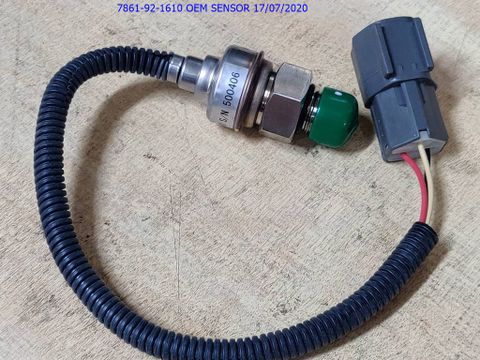Control Valve Sensor
கடைசியாக புதுப்பிக்கப்பட்டது
விலை:
R.F.Q
Share Product:
விவரம்
A non-functional control valve sensor in an excavator or other heavy machinery can lead to a range of issues affecting the hydraulic system's performance, safety, and overall machine efficiency. Here are the common problems associated with a faulty control valve sensor:
1. Hydraulic System Malfunctions
- Erratic Movements: The control valve regulates the flow of hydraulic fluid to different parts of the machine. A faulty sensor can cause erratic or uncontrolled movements of the boom, arm, and bucket.
- Inconsistent Flow and Pressure: Without accurate sensor readings, the control valve may not properly regulate hydraulic pressure and flow, leading to inconsistent performance of the machine's functions.
2. Reduced Operational Efficiency
- Slower Response Times: The sensor provides feedback to ensure timely and accurate responses to operator inputs. A non-functional sensor can cause delays in hydraulic responses, reducing operational efficiency.
- Decreased Precision: Precision in tasks such as digging, lifting, and grading may be compromised, affecting the quality and efficiency of work.
3. Safety Risks
- Uncontrolled Movements: Malfunctions can lead to sudden or unexpected movements, posing a significant safety risk to the operator and nearby workers.
- Loss of Control: In critical situations, the operator might lose control over the hydraulic functions, increasing the risk of accidents and injuries.
4. Increased Wear and Tear
- Component Strain: Inconsistent or incorrect hydraulic fluid flow can place additional strain on hydraulic components, accelerating wear and potentially leading to premature failure.
- System Overload: Parts of the hydraulic system may be overloaded due to improper valve operation, causing damage over time.
5. Higher Maintenance Costs
- Frequent Breakdowns: Hydraulic system malfunctions can lead to more frequent breakdowns, resulting in higher maintenance costs and increased downtime.
- Component Replacement: Persistent issues caused by a faulty sensor can necessitate the replacement of expensive hydraulic components.
6. Diagnostic Challenges
- Difficult Troubleshooting: A non-functional sensor can complicate the diagnosis of hydraulic system issues, as accurate sensor data is crucial for identifying and resolving problems.
- Misleading Error Codes: The machine's diagnostic system may generate misleading error codes, making it harder to pinpoint the actual issue.
7. Operational Interruptions
- Unexpected Downtime: The machine may experience unexpected downtime due to hydraulic system failures, disrupting work schedules and decreasing productivity.
- Reduced Reliability: Frequent issues with the control valve can reduce the overall reliability of the machine, affecting project timelines and efficiency.
8. Performance Degradation
- Loss of Power: Hydraulic functions may not operate at full power, reducing the effectiveness of the machine.
- Inefficient Operation: The machine may consume more fuel and operate less efficiently due to the hydraulic system's inability to optimize performance.
Summary
A non-functional control valve sensor in an excavator can cause hydraulic system malfunctions, reduced operational efficiency, safety risks, increased wear and tear, higher maintenance costs, diagnostic challenges, operational interruptions, and performance degradation. These problems can significantly impact the machine's reliability, safety, and productivity. Prompt diagnosis and replacement of a faulty control valve sensor by a qualified technician are essential to ensure the proper functioning of the hydraulic system and the safe, efficient operation of the machine.
விவரக்குறிப்பு
| திறவுச்சொல் | |
| பிராண்ட் |
பட்டியல் Download



